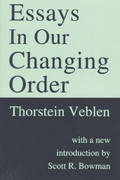Question
An amazing new highly automated laundromat has been developed. Customers drive by and throw their clothes in a bin on their way to work and
An amazing new highly automated laundromat has been developed. Customers drive by and throw their clothes in a bin on their way to work and then return on their way home to pick up pressed and clean clothes. The process uses only two inputs: machines (we will call them capital) and a lot of clean water. These laundromats have become so popular that the dirty water generated has caused a serious pollution problem. As a result, the state has imposed a 50 percent tax on the use of clean water in these laundromats. These questions ask you to think about and graph the effects of this tax on input choices in the short run (when only one input is variable) and in the long run (when the firm can change both inputs).
a). Draw an isoquant (where Q is clean laundry) and an isocost curve to show an initial combination of K and clean water used by the laundromat. Then, draw an isocost curve for the initial level of total costs after the tax is imposed.
b). Show the new combination of K and clean water used after the laundromat adjusts to the tax in the long run, assuming the firm continues to produce Q. Is the tax effective in reducing pollution? {put water on the X axis and capital on the Y axis + assume that the # of washing machines (capital) is fixed in the short-run}
c). What will happen to the firm's total cost function as a result of the tax increase in the long-run?
Step by Step Solution
There are 3 Steps involved in it
Step: 1

Get Instant Access to Expert-Tailored Solutions
See step-by-step solutions with expert insights and AI powered tools for academic success
Step: 2

Step: 3

Ace Your Homework with AI
Get the answers you need in no time with our AI-driven, step-by-step assistance
Get Started


